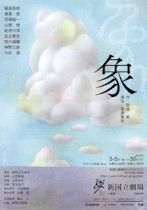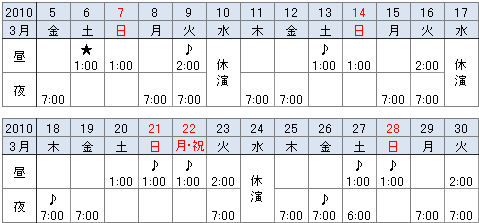
Zou
- 2009/2010 Season
- Zou
- THE PIT
PERFORMANCES

A hospital patient scarred in the atomic bombing has a keloid scar on his back; he has a strange desire to show it off to people on the street as a way to win applause. His nephew tries to persuade him to stop him and convince him that hibakusha (atomic bomb survivors) are neither loved nor hated nor frowned upon by the rest of societyE#92;hibakusha are simply treated with gentle tolerance, and should thus do their part by being strong and not drawing undue attention. Zou plays on the tension of silence. In the contrasting feelings of these two characters, we get a sense of the ostracism faced by hibakusha, and, by extension, the existential anxiety that underlies the human condition. When it premiered in 1962 as the inaugural production of the Jiyu Butai (free stage) theatre company, Zou sent shock waves through the Japanese theatre world. It offered a vivid look at people living out a quiet existence while dealing with profound isolation and anxiety, using a novel style to portray the terror and suffering of the atomic bombings.
Betsuyaku Minoru wrote Zou at age 25. It is the best known work from his early period, and is still performed regularly. Looking at the state of Japan and the world today, its themes seem just as relevant as at the time of its debut over 45 years ago.
Directing Zou will be Fukatsu Shigefumi. Fukatsu directed the debut and revival productions of Kishida Kunio's Doin Sowa, and Mishima Yukio's Yoroboshi (from Modern Noh Plays) at the NNTT to high acclaim. He brings the fresh perspective this work deserves in these modern times.
- Buy Ticket
- Index
- Related Information
-
